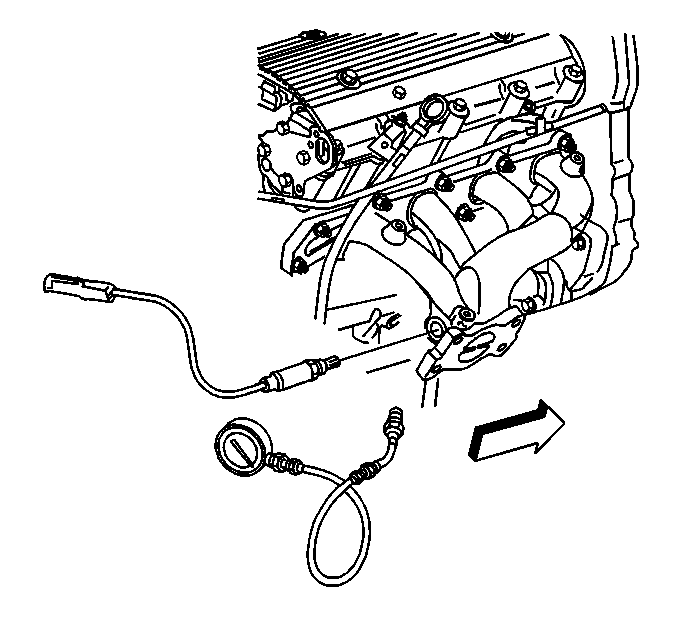System Description

Proper diagnosis for a restricted exhaust system is essential before any components are replaced. Using the Restricted Exhaust System Check table should determine if the exhaust system is restricted. The best place for checking the exhaust system is at the O2S 1 location. Once the test is completed, coat threads with anti-seize compound P/N 5613695 or equivalent prior to O2S re-installation.
Test Description
Number(s) below refer to the step number(s) on the Diagnostic Table.
-
The exhaust system under normal conditions has very low back pressure. If the exhaust system is restricted, a noticeable increase in exhaust pressure is noticed on the gage.
-
If no high back pressure is found at idle, increasing the engine speed to 3000 RPM may find a slight restriction. The added engine speed increases the exhaust flow which will help determine if there is a slight restriction.
Step | Action | Value(s) | Yes | No |
|---|---|---|---|---|
1 | Was the Powertrain On-Board Diagnostic (OBD) System Check performed? | -- | Go to | |
2 |
Is the action complete? | -- | -- | |
Does the reading exceed the specified value? | 3.4 kPa (0.5 psi) | |||
Increase the engine speed to 3000 RPM and observe back pressure reading on the gage. The reading should not exceed the specified value. Does the reading exceed the specified value? | 5 kPa (0.75 psi) | |||
5 |
Did any component require replacement? | -- | ||
6 | Replace the catalytic converter. Is the action complete? | -- | -- | |
7 |
Are any DTC's displayed that have not been diagnosed? | -- | Go to the applicable DTC table | System OK |
